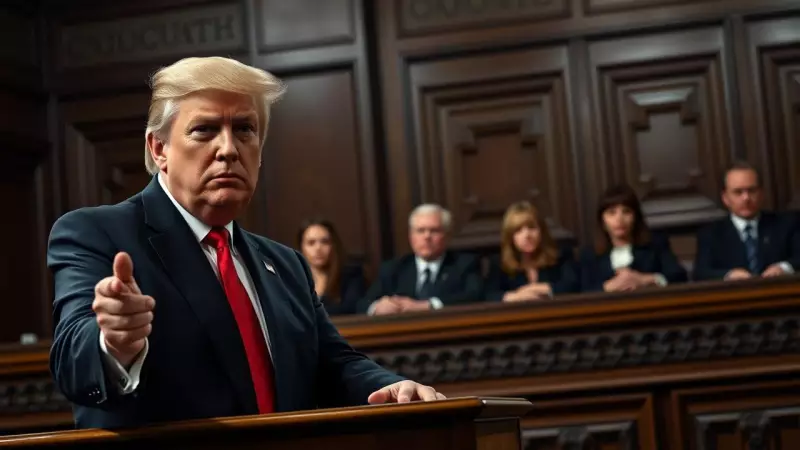
The controversial tariff war initiated by former President Donald Trump is heading for its most significant legal challenge yet, as the US Supreme Court prepares to rule on the legality of billions of dollars in trade taxes imposed during his administration.
The Billion-Dollar Legal Battle
At the heart of this high-stakes confrontation are tariffs levied under Section 232 of the Trade Expansion Act of 1962, which allows the president to impose restrictions on imports for national security reasons. The Trump administration utilized this provision to impose sweeping tariffs on steel and aluminum imports from numerous countries, including close allies.
Legal experts describe this as a pivotal moment for presidential trade authority. The Supreme Court's decision could either reinforce the executive branch's power to impose such tariffs or significantly curtail it, potentially forcing the government to refund billions of dollars to affected companies.
What's Challenging the Tariffs?
The legal challenges stem from multiple directions:
- Foreign governments arguing the tariffs violate international trade agreements
- American businesses claiming the tariffs harm rather than help national security
- Constitutional questions about the scope of presidential authority
- Allegations that the administration overstepped congressional trade powers
The Administration's Plan B
Sources close to the matter reveal that the current administration has been preparing contingency plans should the Supreme Court rule against the tariffs. While the Biden administration has maintained some of Trump's trade policies, it has also been exploring alternative approaches to protect domestic industries.
Potential fallback strategies include:
- Seeking new congressional authorization for targeted trade measures
- Negotiating sector-specific agreements with trading partners
- Implementing alternative trade enforcement mechanisms
- Developing new approaches to supply chain security
Global Trade Implications
The outcome of this case extends far beyond American borders. Trading partners around the world are closely watching the proceedings, as the decision could set precedents affecting global trade relationships for years to come. The ruling may either validate the use of national security as justification for broad trade restrictions or force a return to more conventional trade dispute mechanisms.
With oral arguments scheduled and a decision expected in the coming months, the business community and international trade experts are bracing for a ruling that could redefine the boundaries of presidential trade authority and potentially trigger significant shifts in global commerce patterns.





